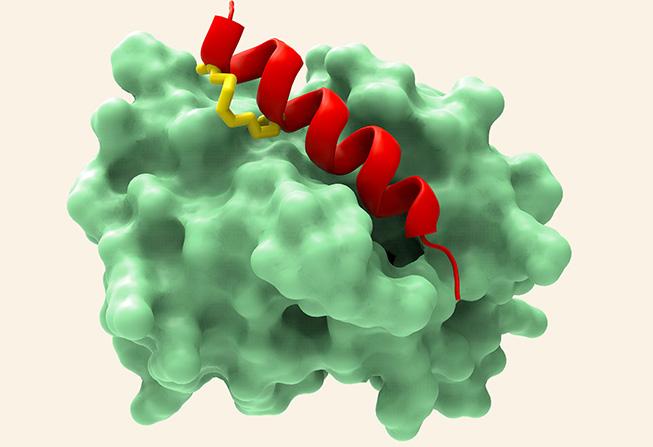Protein-Protein Interactions

Protein-protein interactions (PPIs) mediate many of the cellular processes that are misfiring in cancer and other diseases. Yet, PPIs are notoriously difficult to target with small molecules, which necessitates the development of fundamentally different strategies to target and interrogate PPIs and map the cellular interactome, including those PPIs that involve intrinsically disordered proteomes (IDPs).
At the Chemical Biology Program, we are developing new chemistry-based methodologies for targeting PPIs, such as stapled peptides, fragment-based strategies (FBDD), and complex natural product-based molecules, as well as pursuing biologically compatible reactions for mapping the cellular interactome.
Several labs in our program are driven by major interests in mapping, understanding, and targeting protein-protein interactions:
- The Arthanari Lab is using FBDD to find chemical matter that modulates PPIs involved in transcription and translation.
- The Kim Lab is developing innovative chemical methodologies for mapping and investigating PPIs.
- The Walensky Lab is focusing on key PPIs that mediate cell death and survival pathways.
- The Stapled Peptide Design Group is responsible for the broader accessibility and availability of the stapled peptide technology.